When unfortunately infected with Covid-19, maintaining a proper diet is essential for providing the necessary nutrition to help patients strengthen their health.
Foods and Drinks That Can Support the Immune System Against Covid-19
- 1. Chicken Soup
- 2. Potatoes
- 3. Sugar-Free Fruit Juice Popsicles
- 4. Coconut Water
- 5. Oats, Popcorn, and Other Whole Grains
- 6. Eat Plenty of Fruits and Vegetables
- 7. Soft Foods Like Applesauce and Smoothies
- 8. Plant-Based Proteins
- 9. Fatty Fish
- 10. Yogurt
- 11. Warm Honey Tea
- Things to Avoid When Treating Covid-19 at Home
When it comes to preventing Covid-19 infection, vaccination and other health measures, such as adhering to the 5K guidelines, remain crucial. According to the latest information from the Centers for Disease Control and Prevention (CDC), current Covid-19 vaccines are expected to protect against severe illness and hospitalization.
However, breakthrough Covid-19 infections (meaning those who are fully vaccinated but still contract the virus) can still occur.
The primary symptoms of Covid-19 infection may include: fever, chills, cough, fatigue, muscle or body aches, headache, sore throat, diarrhea, respiratory congestion, shortness of breath, and loss of taste or smell.
If you experience symptoms of severe Covid-19, including: bluish lips (a sign of low oxygen in the blood), difficulty breathing, or chest pain – seek medical attention immediately.
For those with milder Covid-19 infections who can recover at home, many types of food available in your kitchen can help alleviate discomfort caused by Covid-19.
In general, some studies suggest that maintaining a healthy diet can help you recover quickly after contracting illnesses like Covid-19, along with the nutritional regimen recommended by your healthcare team.
1. Chicken Soup

Chicken soup is a nutritious, easily digestible dish that is simple to prepare.
Dr. Julie Miller Jones, a professor emeritus of nutrition at St. Catherine University in Minnesota, USA, states that chicken soup is a nourishing food for the sick to help them recover quickly. More than other chicken-based foods, this soup helps increase mucus flow and eliminate viruses.
“This may be due to a specific amino acid called cysteine found in chicken soup that can affect mucus flow, and we see this particularly in homemade versions,” Dr. Jones explains.
2. Potatoes
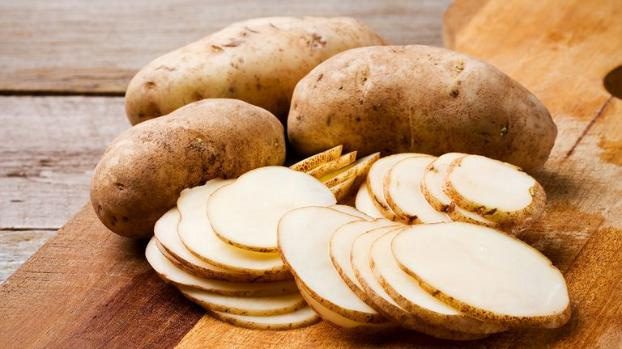
Not only are potatoes a delicious food source, but they also provide essential nutrients and minerals for Covid-19 patients.
Incorporate potatoes into your daily meals. Many studies have shown that this starchy tuber can help regulate fluid balance due to its high potassium content. Fluid balance is crucial when fighting Covid-19 as it is a respiratory illness, and dehydration can thicken respiratory secretions, making it difficult to expel from your lungs.
3. Sugar-Free Fruit Juice Popsicles

Popsicles made from pure fruit juice can benefit immune system function.
Eric Ascher, a family medicine physician at Lenox Hill Hospital in New York, states that these frozen treats can provide hydration and some nutrition, as well as soothe a sore throat if it is one of your Covid-19 symptoms. He explains: “Maintaining high hydration levels will benefit immune system function.”
According to a report on dehydration and Covid-19, the Healthcare Infection Society notes that hydration and infection operate in a vicious cycle: insufficient fluid leads to infection, which then accelerates your fluid loss. The report further states that fluid deficits seem to develop slowly in Covid-19, so be sure to maintain high hydration levels even when you don’t feel thirsty.
4. Coconut Water
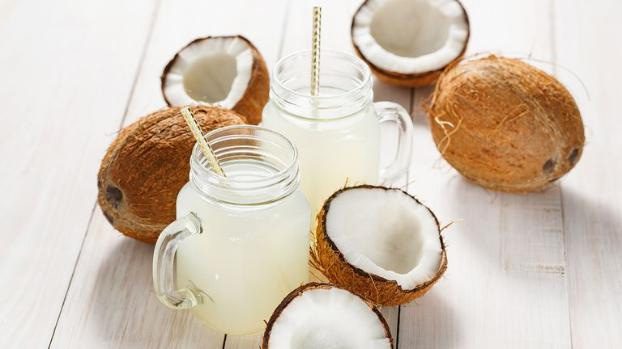
Coconut water replenishes electrolytes, helping Covid-19 patients cope with diarrhea.
Electrolytes are minerals like potassium, sodium, and calcium that your body needs to function. When you have diarrhea, your body loses a lot of electrolytes that need to be replaced for you to heal and not feel weak. Typically, when electrolyte loss occurs, people turn to sports drinks to quickly replenish. However, coconut water is better as it is a great way to hydrate with natural electrolytes and no added sugars. To avoid consuming extra sugar, which can hinder immune function, choose unsweetened coconut water.
5. Oats, Popcorn, and Other Whole Grains
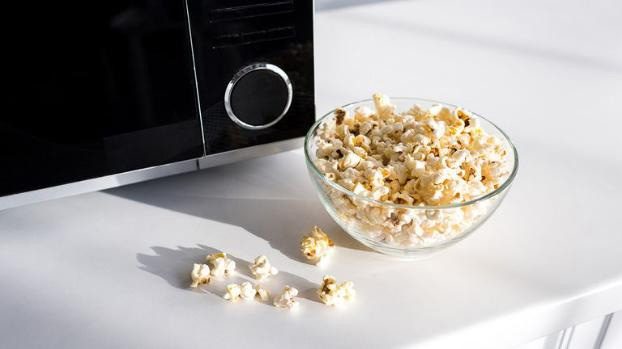
Popcorn is a healthy snack if consumed correctly.
Covid-19 causes inflammation in the body like any virus. Therefore, when you are infected with Covid-19, it is advisable to increase foods with anti-inflammatory properties. An accessible group of foods that can allow you to reap these benefits is whole grains. Researchers have found that consuming whole grains is associated with reduced signs of inflammation. Oats, popcorn, brown rice, whole grain bread, and more are easily sourced whole grain foods that are easy to prepare.
6. Eat Plenty of Fruits and Vegetables
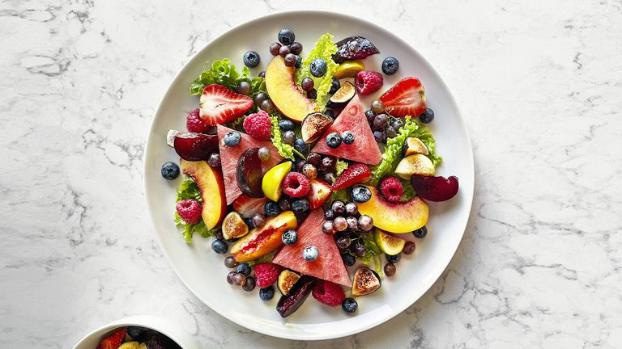
Covid-19 patients should consume plenty of fresh vegetables and fruits in their daily diet.
Eating products rich in natural vitamins is important for health, whether you have been exposed to the SARS-CoV-2 virus or not. These anti-inflammatory foods have promising benefits in accelerating your recovery process. A plant-based diet (such as vegetarian or vegan) not only reduces the risk of developing Covid-19 but also lessens the severity of symptoms for those who have contracted the virus.
You may know that potatoes are beneficial, but try other options like watermelon, strawberries, cucumbers, and lettuce, which can be good for your body due to their high water content and essential vitamins.
7. Soft Foods Like Applesauce and Smoothies
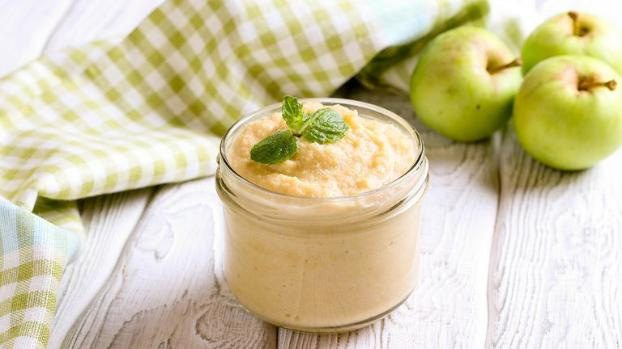
Applesauce or smoothies with anti-inflammatory vegetables.
If stomach pain is one of your symptoms, nutritionists recommend consuming anti-inflammatory foods in easily digestible forms, such as applesauce or smoothies. Consider adding some vitamin K-rich fruits and vegetables like broccoli, kale, spinach, watercress, and bok choy, all of which have anti-inflammatory effects, to your meals.
8. Plant-Based Proteins
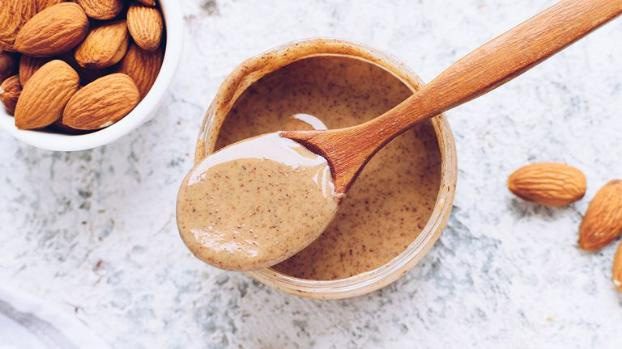
Boost your intake of plant-based proteins like nuts, mushrooms, and seed butters.
As mentioned, a plant-based diet can aid in recovering from Covid-19. In your meal plan, ensure you include proteins from sources like nuts, mushrooms, and seed butters.
Consuming plenty of protein-rich foods is crucial to maintain muscle mass during a time when you may be cutting back on physical activities. Additionally, Covid-19 is a hypermetabolic state, meaning your body is burning more fuel to speed up recovery, and if you do not provide enough nutrition, it can lead to increased fatigue.
Typically, those affected by Covid-19 often reduce their nutritional intake due to shortness of breath or loss of appetite. If you are struggling to maintain a normal appetite during your Covid-19 diagnosis, focus on protein. Animal protein is also a good option. However, a study published in the journal Current Developments in Nutrition indicates that plant-based protein may be a better anti-inflammatory agent compared to animal protein.
9. Fatty Fish
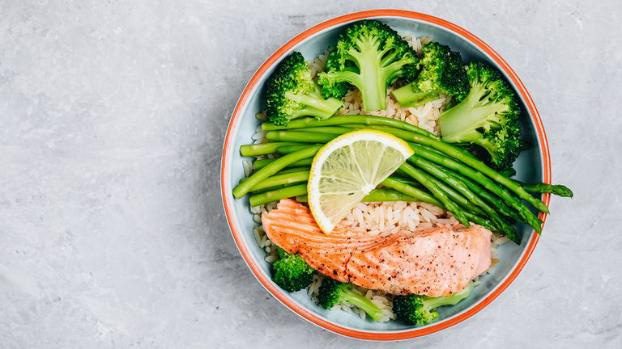
Fatty fish can help reduce inflammation caused by Covid-19.
Sources of omega-3 fatty acids include fatty fish such as salmon, cod, and sardines, which may help reduce inflammation caused by Covid-19, according to a research review published in the journal Infection & Chemotherapy.
Researchers have suggested that omega-3 fatty acids have been shown in previous studies to be incorporated throughout the body into a specific layer of your cell membranes. They noted that this process may help minimize inflammation and could have antiviral effects. That said, more research on omega-3 and Covid-19 is necessary.
10. Yogurt
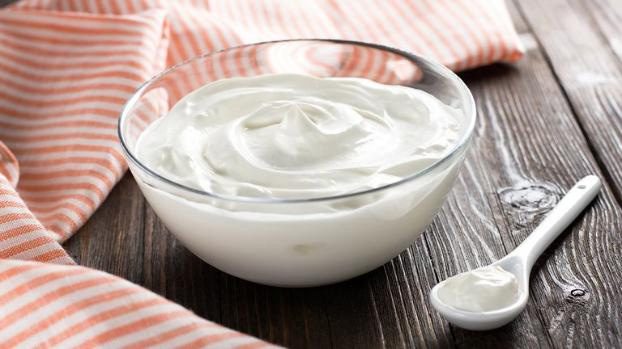
Yogurt provides protein and probiotics that help alleviate symptoms of Covid-19.
Yogurt is a typical source of protein: 1 cup of yogurt provides a substantial amount of protein—up to 14g.
Yogurt is also a fermented food, which may help reduce the severity or duration of a Covid-19 episode.
Researchers note that fermented foods and probiotics can provide beneficial bacteria for the digestive system, which directly impacts immunity as well as lung function.
11. Warm Honey Tea
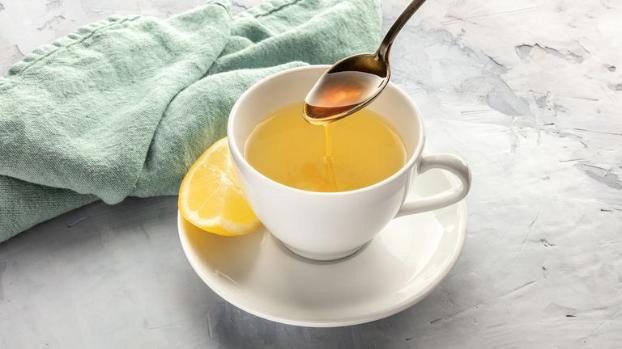
Sipping warm tea with honey can help soothe a sore throat.
Like chicken soup, warm tea can help break down mucus and push it out of the body, along with some viruses, Dr. Ascher said. Instead of sugar, add honey to your tea. A cup of warm tea with honey before bed may improve your sleep when you have Covid-19, and it also has antibacterial properties that enhance immune response.
Regarding the antibacterial effects of honey, many previous studies have noted that honey is very effective in its antibacterial and anti-inflammatory properties. A research review published in the journal Heliyon hypothesized that the ability to reduce acute inflammation, as seen with Covid-19, may lead to an enhanced immune response from the body.
Things to Avoid When Treating Covid-19 at Home
David Cutler, a family medicine doctor at Providence Saint John’s Health Center in Santa Monica, California, stated that existing medications to treat Covid-19 symptoms can pose serious health risks if used improperly and at the wrong time. Therefore, patients with mild Covid-19 symptoms self-treating at home must strictly adhere to medical guidelines. Do not self-medicate with anti-inflammatory drugs, antibiotics, or any prescriptions intended for other patients.
It is important to avoid foods that promote inflammation such as sweets, fried foods, sugary drinks, processed foods, and foods high in sodium.
And once again, be aware that no single food can make Covid-19 disappear, nor is there a one-size-fits-all diet. Monitor your symptoms, and if you experience signs such as shortness of breath, persistent chest tightness, or pain, seek medical help immediately.



















































